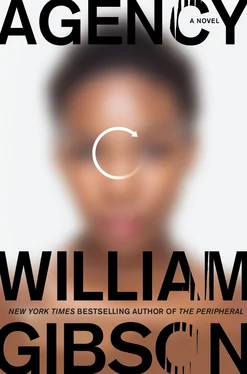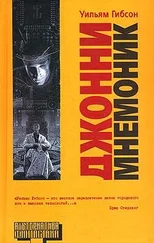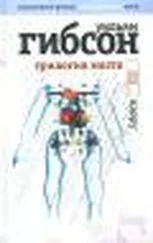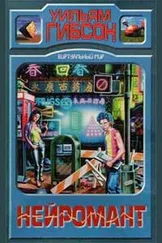“Just got a job,” Verity said, “but I can’t talk about it.”
“As long as it doesn’t involve getting marble out, you’re good. First owner evidently didn’t know that other materials existed, so there’s a lot of it. Caitlin wants every last gram of it optimally recycled, so we have to get as much of it as possible out intact, unbroken.”
Her phone rang. “Sorry,” she said, raising it.
“No problem.” He smiled, turning another corner.
“Don’t hate on me,” Eunice said.
“I do have good reason,” Verity said, her tone cheerful for Virgil’s benefit.
“It’s situational.”
“Steady-state, if things keep on this way,” Verity said, as Virgil turned onto Fourteenth.
“We have to stay inside their feedback loop. Sometimes I have to push you out of a comfort zone.”
The grimly accusatory façade of the Armory loomed now. “Being pushed is outside my comfort zone.”
“Right now,” Eunice said, “we’re being followed. By the dude who’s behind on his child support. Four more waiting for rides, to go wherever he follows us. Last one’s covering 3.7, in case you come back. Work with me.”
Verity took a deep breath, slowly let it out. “Okay.” Beyond the Armory now, they passed antigentrification murals.
“We need a sit-down with Stets, the three of us.”
“How would that look, devicewise?”
“We go with what he’s got. Worst case, you prop your phone up on something, speaker on, and I use an avatar.”
“Topics?”
“Your new job, my views on your employer…”
“What you’ve said to me?” She glanced at Virgil, deciding he looked a little too determinedly like he was just driving.
“Sure,” Eunice said, “and whatever you think about it. It’s not a pitch. We’re giving him a chance to decide whether he wants to be involved with us.”
Past shoals of waist-high cardboard microshanties now, some with shopping carts as structural elements, many roofed with pale-blue dollar-store plastic tarps. “That’s not entirely his call. Or yours.”
“I know. But we’re almost there. End the call.”
“Okay,” said Verity, “bye.” Lowering the phone as they drove beneath the overpass feeding the bridge.
Opening out into SoMa, to descend eventually, blocks and corners later, an off-street ramp of spotlessly new concrete. Stopping before a grid of white-painted steel rod, which rose hydraulically. As he pulled forward, she glanced back, seeing the gate descend behind them.
Rainey had decorated their flat with furniture collected since joining him in London, all of it the product, relatively speaking, of human hands. None of it, as she put it, liable to shape-shift. She admired Scandinavian design of the mid-twentieth century, but couldn’t afford it, so looked for period knockoffs rather than assembler simulacra.
“So it’s earlier, there? Earlier than the county?” she asked from the kitchenette, as she plated their evening meal.
“The year after the Americans elected their first female president.”
“Gonzalez?”
“No. They elected theirs earlier, in 2016. And the Brexit vote was to remain. May I help you?”
“Have a look in at Thomas, please.”
He crossed to the nursery door, saw Thomas curled in his crib, surrounded by a soothing miniature auroral display. “He’s fine.”
“Are people happier there?” she asked. “Happier than they were here, then?”
“I gather they aren’t, particularly.”
“Pity,” she said. “Ready for tilapia tacos? Place on Tottenham Court Road. Better Mexican in your new stub, no doubt. Why aren’t they happy, there?”
“The drivers for the jackpot are still in place, but with less torque at that particular point.” He took a seat at the table. “They’re still a bit in advance of the pandemics, at least.”
She took the seat opposite. “Nothing before the 2020s has ever seemed entirely real, to me. Hard to imagine they weren’t constantly happy, given all they still had. Tigers, for instance.” Picking up a taco. “What had to change, to produce the opposite result in that election?”
“We don’t know yet. Connectivity’s too poor to access the data needed for that.”
“Could you take me there?”
“Not yet. That same lack of connectivity. Infrastructure’s wanting.”
“I liked the county,” she said, “even though it made me sad.”
“It did? Why?”
“They’re living in a conspiracy theory, but a real one. Controlled by secret masters. Your employer, primarily.”
“But isn’t it better there now, than if we hadn’t intervened?” he asked.
“It is, I’m sure, but it makes a joke of their lives.”
“But everyone you know there is in on it.”
“I don’t know whether I’d rather know or not know,” she said, and took a bite of taco.
Virgil parked in a white garage, beside several crisp trade vans, the polished concrete floor only lightly marked by tires. In front of them, massively framed in bronze-toned metal, a single equally bronze-toned elevator door. First owner, she assumed, doubting the architect fiancée was into faux-pharaonic kitsch.
They got out. He walked to the elevator, to swipe a card in a slot. The door hummed briskly open. He gestured for her to enter.
She did, finding herself reflected in rose-gold mirror.
“Hang on,” he said, from outside, “it’s fast.”
“You’re not coming?”
“Chores here. But I’ll take you back.”
“Okay,” she said, “thanks.”
“Fifty-second,” he said, as the door closed. She steadied herself on an oversized handrail, the ascent commencing, accelerating smoothly, as the glasses tiled with feeds, like horizontally displayed playing cards.
“Every cam in the building, except Stets’,” Eunice said, the elevator’s speed making Verity slightly light-headed. She saw vistas of cube farms, screen-lit faces in individual cubicles, a long service island in a kitchen the size of her condo, an angle down on a vacant swimming pool, a baby in its crib.
The elevator slowed, to stop with only the faintest bump, the feeds blinking out. The door opened behind her. She turned, to face an odd blue light.
A power tool yelped its way through something, at a distance. She turned back, to check her face in the mirror, then stepped out, into a confusing space made more so by that light. Whatever the building’s top several floors had contained had been stripped to raw concrete, little else, with only a small portion of the uppermost floor remaining. Scaffolding ran up to this, supporting a temporary zigzag of aluminum stairs. Blue plastic tarps, semitranslucent, like the ones covering the cardboard shanties she’d passed in the street, were laced together, strung taut, across walls of glass.
With a barely audible whirr, something detached itself from beneath the lapel of her tweed jacket and shot forward.
“Other one’s in the car with Virgil,” Eunice said, opening a feed from the microdrone, nothing but the blue of the tarps, then briefly blurred, as it zipped between two adjacent edges. To overlook the Bay, where something anomalously vast loomed in what was left of bad wildfire light, as though the horizon should sag beneath it.
“What’s that?”
“Container ship,” Eunice said. “Chinese. Not their biggest, but up there.” The saw or grinder scrawked again, echoes ringing metallically off concrete she supposed had recently been covered by Virgil’s marble.
“Verity!”
The ship vanished. She looked up.
His face above a bright yellow railing, topped with his trademark permanent bedhead. “Come up,” he called, as Eunice drew her lines around his nose. “I’d be down to greet you, but I’ve fucked up my knee.”
Читать дальше








